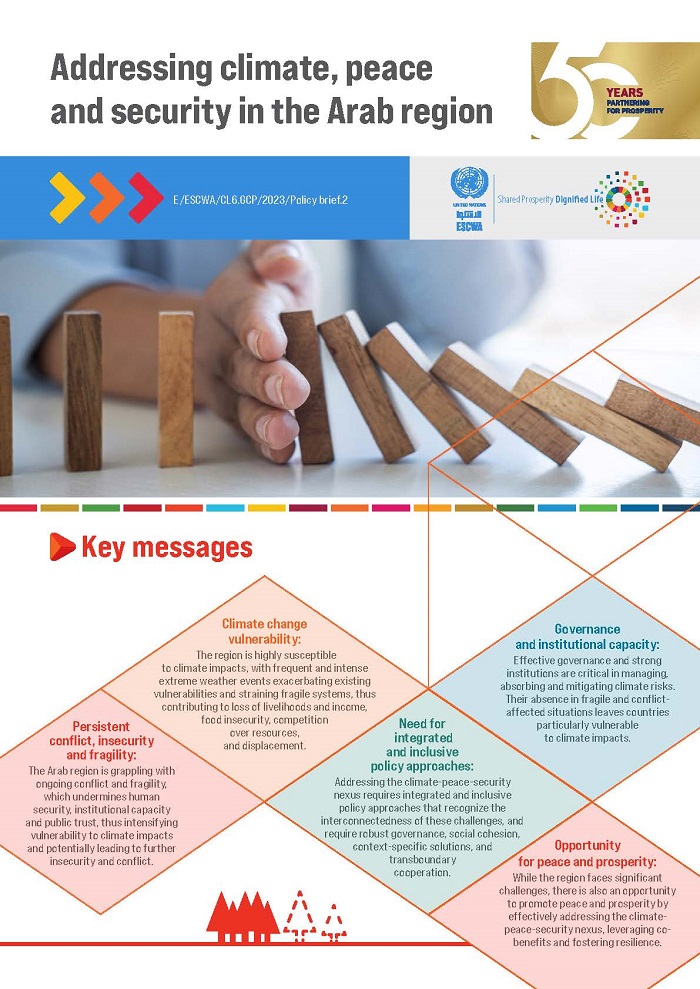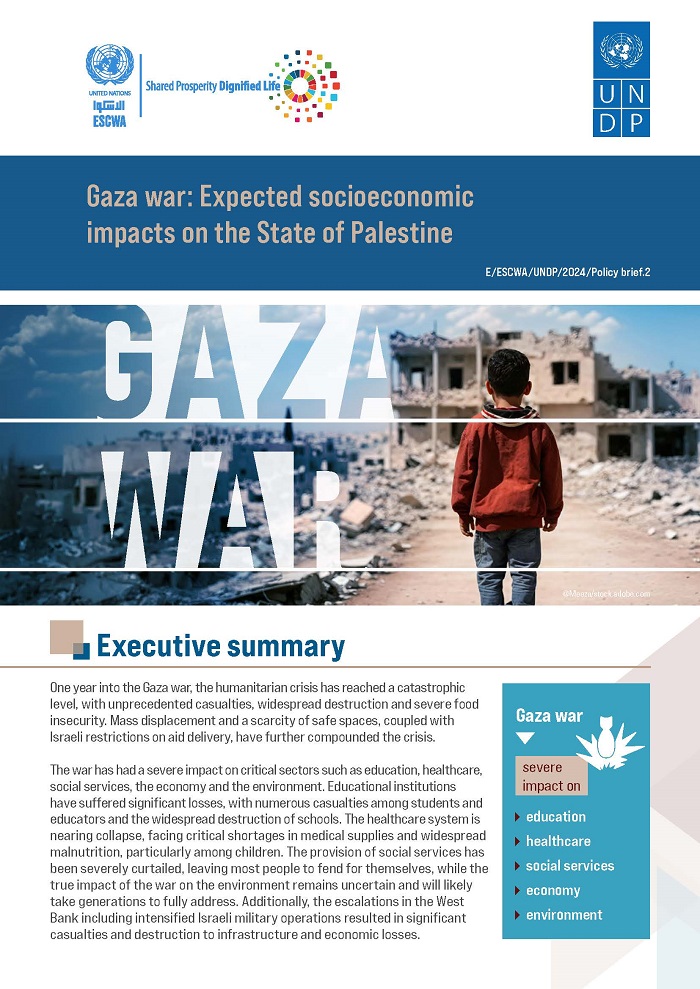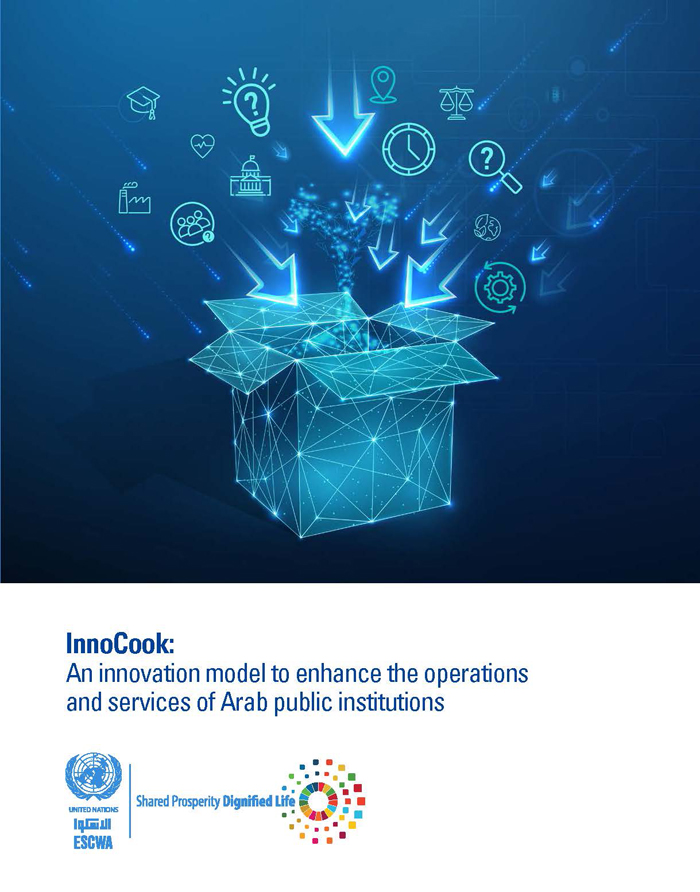
ESCWA Publication: E/ESCWA/CL6.GCP/2023/Policy brief.2
Country: Arab region
Publication Type: Policy briefs
Cluster: Governance and Conflict Prevention
Focus Area: Governance & enabling environment, Resilient development & conflict prevention
Initiatives: Governance and institution building
SDGs: Goal 11: Sustainable Cities and Communities, Goal 13: Climate Action
Keywords: Climate change, Armed conflicts, Peacebuilding, Natural disasters, Governance, Human security, Institution building, Capacity building, Food security, Income distribution, Migration, Recommendations, Natural resources development, Financial resources, Social security, Technological innovations, Research, Risk, Iraq, Libya, Lebanon, Somalia, Syrian arab republic, Algeria, Bahrain, Egypt, Oman, State of palestine, Sudan, Tunisia, United arab emirates, Yemen, Mauritania, Djibouti, Jordan, Morocco, Saudi arabia, Kuwait, Qatar, Disaster loss
Addressing climate, peace and security in the Arab region
November 2023
The Arab region is grappling with ongoing conflict, insecurity and fragility, which intensifies the vulnerability to climate impacts. Simultaneously, more frequent and intense extreme weather events are exacerbating existing vulnerabilities and straining fragile systems, contributing to known drivers of insecurity and conflict.
Addressing the climate-peace-security nexus is an imperative to avoid potential vicious cycles of climate vulnerability, insecurity and conflict. It presents an opportunity to promote peace and prosperity by leveraging co-benefits and fostering resilience. To succeed, it is critical to adopt integrated, inclusive and cooperative policies that are tailored to each context, and ensure effective governance and strong institutions.
Related content
Governance & enabling environment
, Resilient development & conflict prevention
,
The Arab region is grappling with ongoing conflict, insecurity and fragility, which intensifies the vulnerability to climate impacts. Simultaneously, more frequent and intense extreme weather events are exacerbating existing vulnerabilities and straining fragile systems, contributing to known drivers of insecurity and conflict.
Addressing the climate-peace-security nexus is an imperative to avoid potential vicious cycles of climate vulnerability, insecurity and conflict. It presents an opportunity to promote peace and prosperity by leveraging co-benefits and fostering resilience. To succeed, it is critical to adopt integrated, inclusive and cooperative policies that are tailored to each context, and ensure effective governance and strong institutions.



